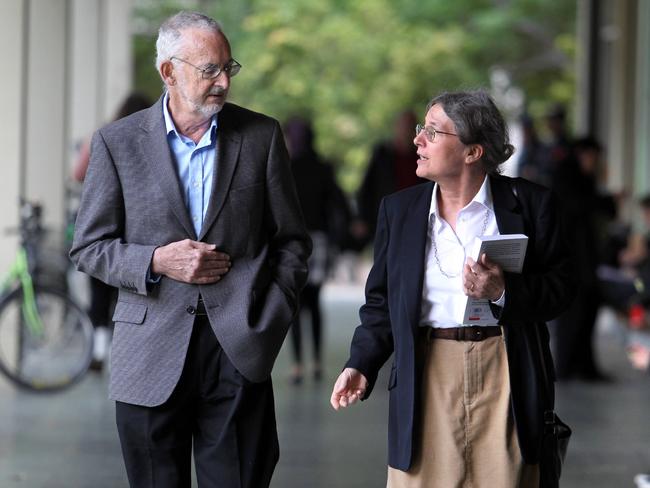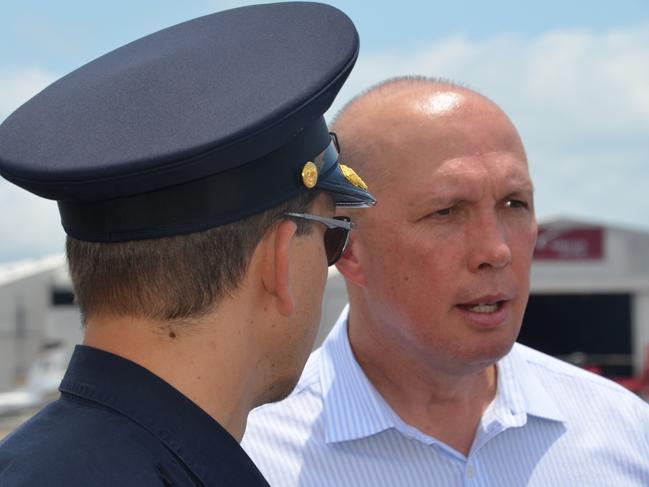Permanent migrant visas fall under Department of Home Affairs reforms
A BIG drop in the number of visas given to the foreign spouses and partners of Australians has underpinned a general decline in permanent migration last year.
News
Don't miss out on the headlines from News . Followed categories will be added to My News.
A BIG drop in the number of visas given to the foreign spouses and partners of Australians has underpinned a general decline in permanent migration last year.
In 2017-18, a total of 162,417 permanent migrants were processed, while the official program allowed for up to 190,000 places, the Department of Home Affairs has revealed.
Most of the shortfall was due to tougher vetting of skilled applicants under reforms introduced by Home Affairs Minister Peter Dutton.
FOREIGN INFLUX AS MIGRANTS FLOCK TO VICTORIA
SCOMO FORCED TO DEFEND NEW MIGRANT, VISA PLAN
MIGRATION CUT TO TAKE TOLL ON BUSH, EXPERT WARNS

Also significant was a big drop in the number of partner visas processed from 47,825 in 2016-17 to 39,799 last year.
Foreign partners comprise 83 per cent of all family reunion visas, and there are more than 80,000 applications in the pipeline.
Australian Population Research Institute president Dr Bob Birrell said the decline showed the federal government was taking back control of a visa category that had blown out. “This has been a major backdoor migration entry into Australia for years by people who couldn’t make it here via other channels,” he said. “It’s quite blatant the extent to which they are allowing sponsors to bring in partners who are quite young and with no requirement to have the funds to look after them.”
The Department of Home Affairs report revealed that there were 111,099 skill stream places delivered last year, down from 123,567 in 2016-17.

This included a drop in employer-sponsored visas from 41,652 to 29,738, and a fall in regional sponsored migrants from 10,198 to 6221. However, the number of state and territory-sponsored visas rose by 15 per cent to 27,400.
India was the main source of permanent migrants last year (33,310), followed by China (25,145), UK (13,654), Philippines (10,610), Pakistan (6235) and Vietnam (5124).
Of the 145,158 migrants who nominated a state of intended residence, 36 per cent said NSW, 28 per cent said Victoria and 12 per cent nominated Queensland.
The report said total visa refusals increased by 46.2 per cent, while withdrawals rose by 17 per cent. “There is now a higher proportion of high-risk cases across our programs, with applications lodged by individuals with complex immigration histories, including extensive travel histories, unsuccessful visa applications and/or periods of being unlawful in Australia,” it said.


